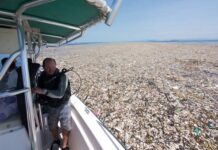There’s a dark side to cruise ships that is being hidden from you.
Some people take cruises with the perception they will be getting fresh air out at sea and helping to support coastal communities along the way.
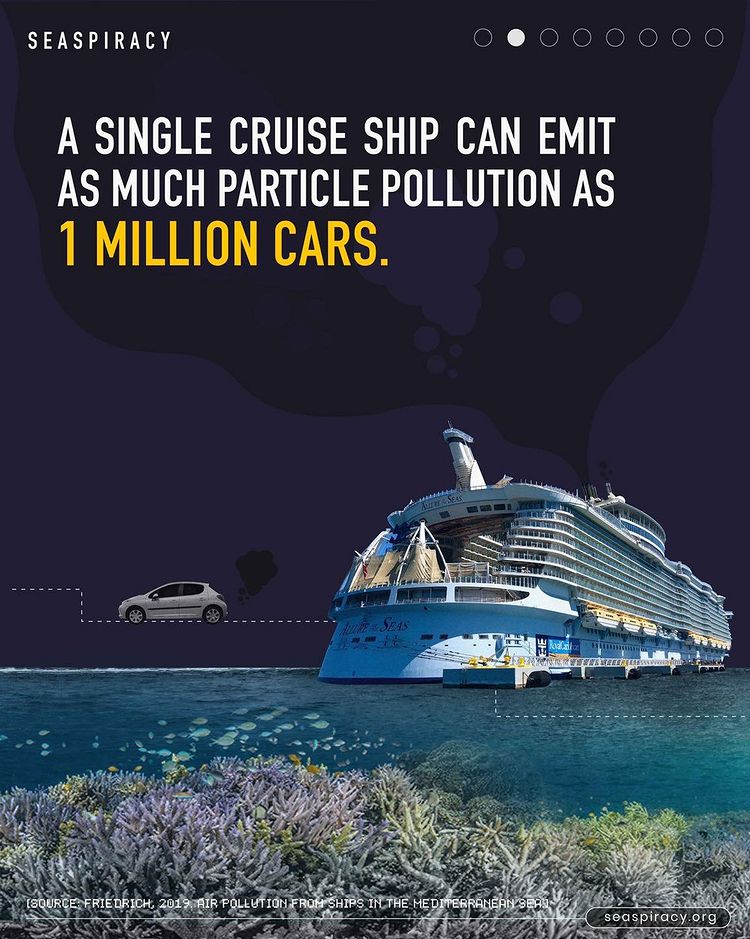
They just dump sewage into the ocean
The average cruise ship produces 210,000 gallons of human waste during a weeklong trip. The entirety of that waste gets dumped directly into the ocean. The waste is treated to remove moisture, and then dumped into the sea. There are federal regulations about how far from shore the ships have to be to dump their “blackwater,” but it’s only twelve miles. Yep, twelve miles from your favorite beach, there are cruise ships dumping the equivalent of five olympic swimming pools’ worth of human filth. The ocean is a big place, but it’s still not hygienic to dump that volume of sewage into the water. The waste tends to contain intestinal parasites and toxic bacterial loads. And, of course, norovirus.
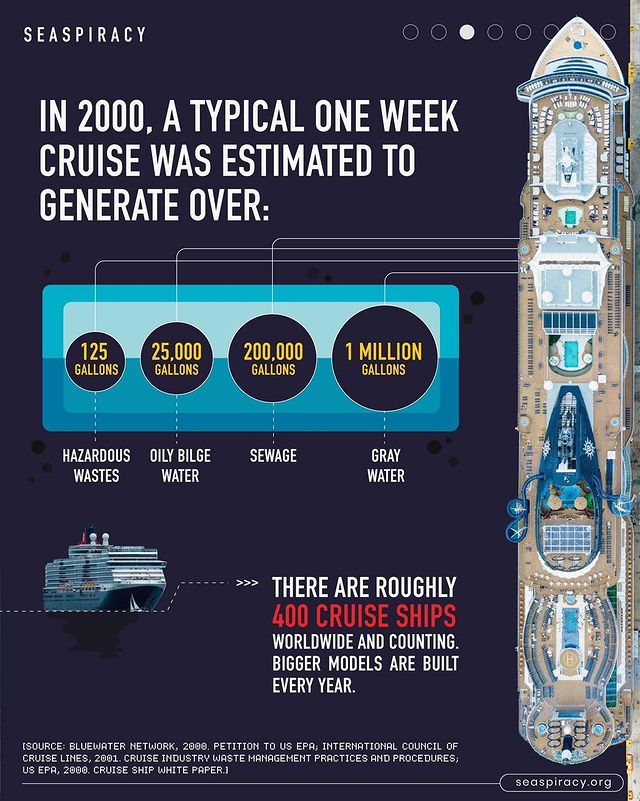
They use a massively polluting fuel
Most cruise ships are powered by an extremely crude and outdated fuel called “bunker fuel.” It’s a thick petroleum product that contains up to five thousand times more sulfur than gasoline. Bunker fuel is the fuel of choice because it’s cheap. Some cruise lines have started installing filters on their exhaust systems to try to mitigate the environmental damage of using the extremely dirty-burning fuel, but it’s still not as good as just updating to a better fuel source. Bunker fuel, also called fuel oil, is also commonly used by deepsea freight ships.
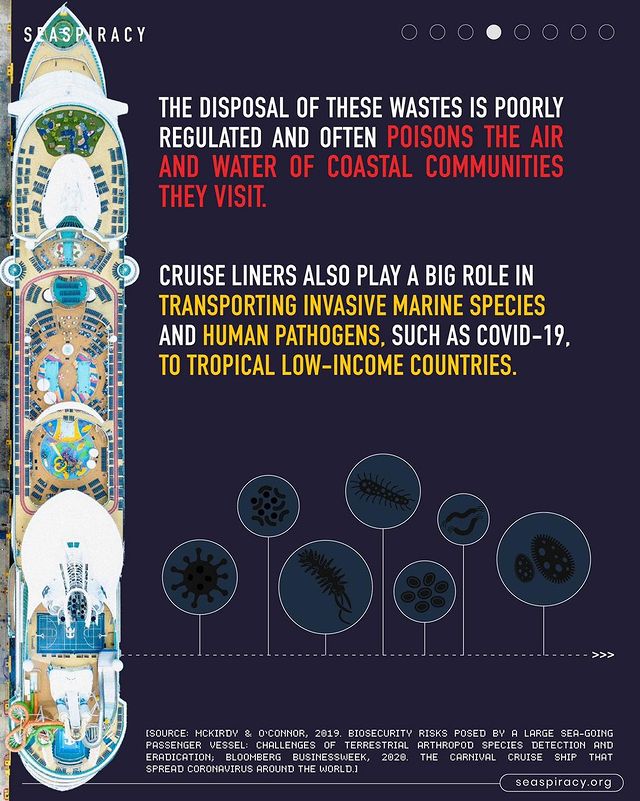
Their labor practices are scummy
There is a distinct class divide in most cruise ship staffs. Typically, only about a quarter of the crew are from developed countries. They fill the passenger-facing positions. The rest of the crew tend to be from undeveloped countries, and are employed for borderline slave wages. Cruise ships aren’t subject to American labor law. The majority of the work done onboard is in difficult, sometimes dangerous conditions, for not nearly enough money. It’s not unusual for a full-time worker to earn $400 in a month.
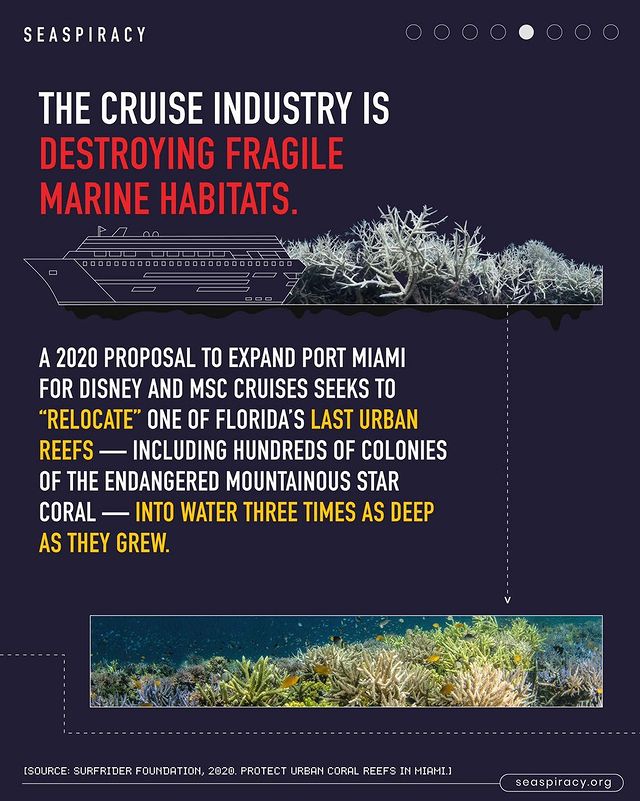
They are also made to shoulder the financial burden of their own travel costs. And they have to pay a stipend to the crewing agents who place them in their jobs.
All is not rosy for the crew who work with passengers, either. They are actually often paid less than the laborers and expected to compensate for the gap with tips.
Ship doctors aren’t regulated
If you go on a cruise, do whatever you can to avoid getting sick or injured. While you may receive good medical care, you also may not. And if you don’t, there’s very little recourse. Cruise ships tend to hire doctors that are credentialed in foreign countries with looser standards. They’re also hired as independent contractors, meaning the cruise lines aren’t culpable in case of malpractice. You’d have to sue the individual doctor in their home country. The medical facilities themselves are also often under-equipped.
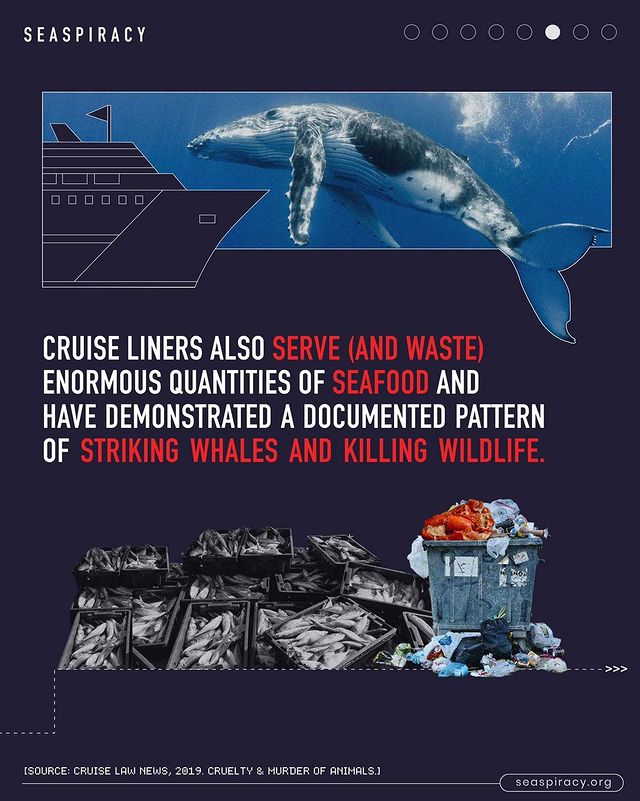
Disease outbreaks are common
Diseases spread in conditions where large groups of people are constrained together in close quarters. They also like it when there’s lots of food being handled. Cruise ships present almost ideal conditions for disease outbreaks. Cruise ships are, unsurprisingly, the sites of disease outbreaks fairly commonly. The norovirus is especially common on cruise ships. There were eight different cruise ship norovirus outbreaks in the first three months of 2014 alone. When an outbreak does occur, it hits a huge proportion of the people onboard. Most norovirus outbreaks hit at least 100 passengers at a time. It often leads to premature disembarkation.
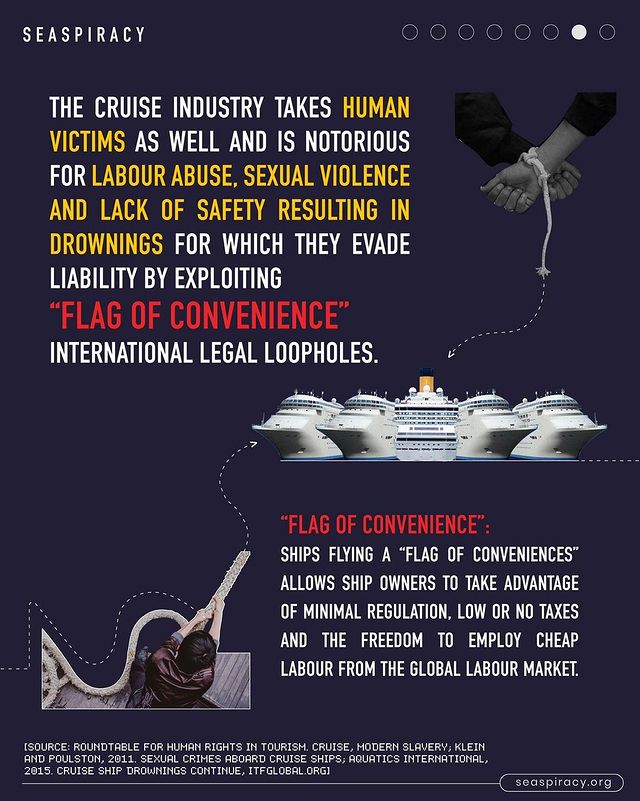
You’re being watched
Cruise ships are blanketed with surveillance cameras. Pretty much any time you’re not in your cabin, you’re being filmed. They film so that in the case of an emergency, they can replay the security footage. But it also means that every bad decision you make is set to
film. It’s not significantly different than being filmed in a supermarket. Except that you don’t live in a supermarket for a week at a time.
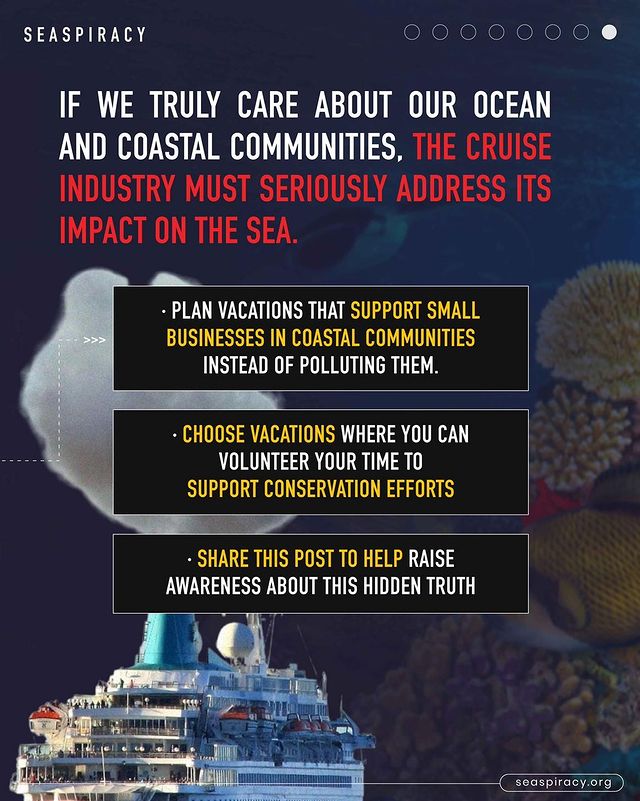
The Crew are trained to handle pirate attacks
Pirates aren’t just the stuff of Disney movies – they are still a very real problem in many parts of the world. While it’s not common for pirates to target cruise ships, it is still possible. And in the event of a pirate raid, the crew is ready. A man who worked for both Princess and Oceania says he was trained to spray the raiders with water cannons. Some other cruise ships also employ with Long Range Acoustic Devices that can be used to deter attackers with painfully loud sound. This is exactly how a cruise liner evaded a pirate attack in African waters in 2005.
Cruise lines use tax loopholes
Even after all the extra surcharges are added up, cruises are still pretty affordable, considering what they are. Cruise lines keep their ticket prices low by exploiting
tax loopholes. Cruise lines are often incorporated in countries that have loose tax laws, like the Bahamas, Liberia and Panama. A US tax code loophole permits “shipping companies” to incorporate in foreign countries. There are legislators pushing to close the loophole, since they do benefit from Coast Guard protection and the use of ports.
According to an undercover investigation by Channel 4’s Dispatches team, they found passengers can be exposed to more pollution on the deck of a cruise ship than in the world’s most-crowded cities.
The investigation also revealed that one of Britain’s biggest cruise ships emits as many “ultra-fine particle” pollution as a million vehicles in a day.Not only do cruise ships have a massive environmental impact, they also threaten marine wildlife, fragile ecosystems and impact the health of coastal communities too.
In 2017, Princess Cruises were fined $40 million for polluting the ocean by dumping 4,227 gallons of “oily waste” off the coast of Britain.
It’s time we realised the true impact cruise ships are having on our planet and its inhabitants.
Share this post to help raise awareness.
Sources:
seaspiracy.com
https://www.agricanto.org/uploads/5/2/6/3/52634281/dirty_little_secrets_of_big_cruise_ships.pdf




